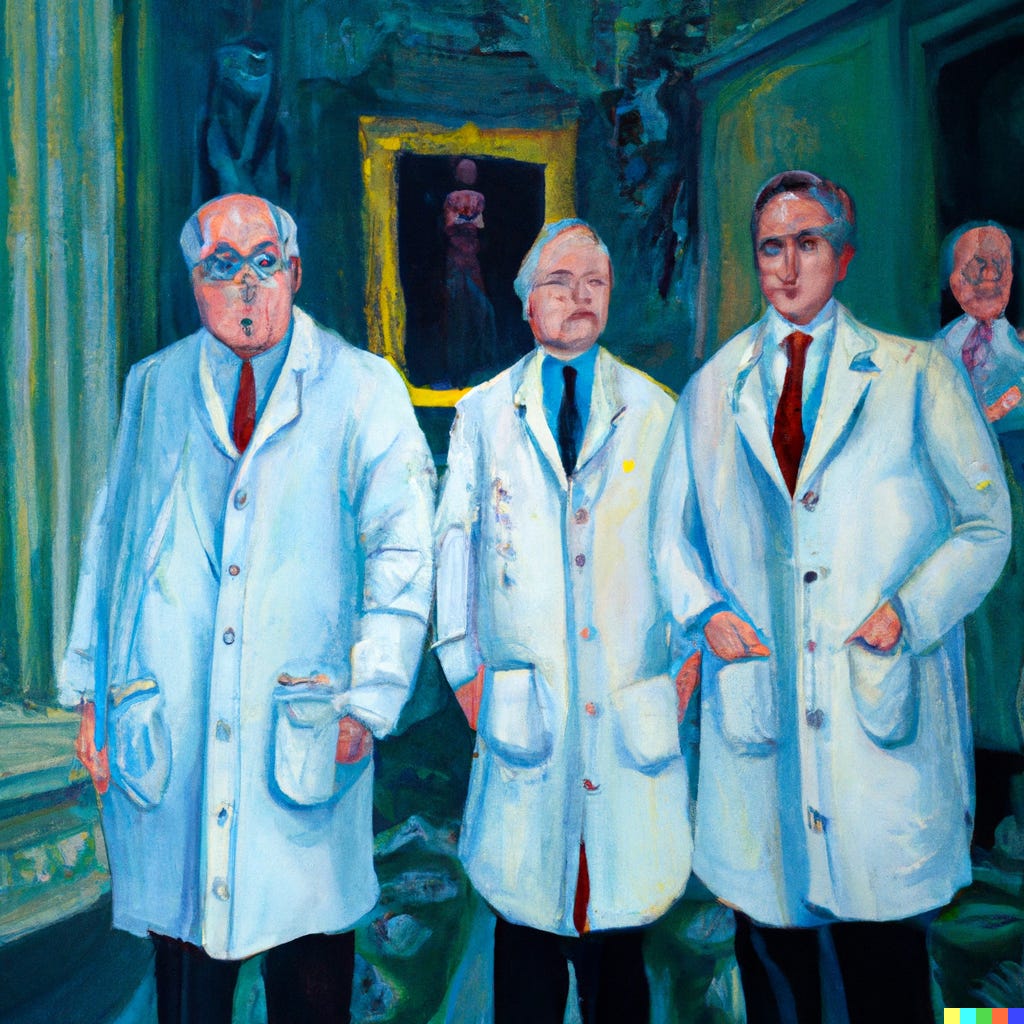Why Regulation Isn't Coming to Save You: AI in Vet Med Edition
Regulation won't stop the shift to AI, but it will stymie innovation and entrench the current players.
Whatever your profession, if you follow the business and venture capital world, you’ll hear tell of the legend of the tall Texan, Bill Gurley. At 6’9”, it’s hard not to notice his height, but the other thing people say about Bill Gurley is how he’ll remain quiet. He doesn’t fill silences with idle chatter. A longtime venture capitalist, he seems to know that two things matter in the tech world. Brains. And zeal.
Mr. Gurley gave a an enthusiastic and extremely well-researched talk a few weeks ago at the All In Conference, titled “2,851 Miles.” He says, “The reason that Silicon Valley is so successful is because it’s so fucking far away from Washington.”
Regulatory capture isn’t a concept I learned about in veterinary school. It’s essentially legalized corruption, though we pretend it’s something nifty when we give out Nobel Prizes for its creators. And if you think that’s bad, just wait until you read about Citizens United vs. Federal Election Commission. Veterinarians don’t get education in this sort of thing unless they go hunting for it on their own.
Mr. Gurley cited a case study published in a bit of Morgan Stanley material. I couldn’t find the original study, and didn’t hear back from the author when I reached out. (Mr. Gurley cites it as published in 1999, but the graphic he shared seems to show a 2019 publication.)
He notes that after the Dodd-Frank Act in 2010, and how the number of new banks in the United States went from dozens a year to almost none.
He notes the landmark telecommunications bill of 1996, a bill designed to promote competition and reduce regulation in order to secure lower prices and higher quality services for American telecommunications consumers and encourage rapid development of new telecommunications technologies. In the five years following, the four largest telecommunications companies went from 48% market share to 85% market share.
Oops.
Regulation always favors the incumbents.
And now that the tech leaders like Sam Altman, Mark Zuckerberg, Jensen Huang, Alex Karp, Elon Musk, and Brad Smith are calling for regulation, it’s definitely because AI is a scary new technology that needs government intervention so it can protect the citizens from the big bad robot software, right?
Probably not, no. It’s cynical to say so, but those folks are all smart enough to know that the way to kill further disruptive innovation is to create regulation. They had a free and unencumbered run to develop the technology and announce themselves as the lords of artificial intelligence, and now they’ll make sure it’s all but impossible to challenge the hierarchy.
It’s not altruism, it’s protectionism.
But it’s not that bad, right? Surely the fact that we’ve given individual rights to corporations will mean they’ll only give their financial support to candidates who align with their corporate ideals?
Not really, no.
Google gave hundreds of thousands to both major parties. So did Twitter. So did Microsoft. So did Apple. So did Meta. That’s not “free speech" so much as it is open and legal corruption. It’s not announcing values or opinion or perspective, it’s announcing that these companies are open for business for politicians who’d protect their interests.
And if you think that the veterinary lobbyists and so-called “policy experts” are any better, I assure you that they are mistaken. They are every bit as mercenary as lobbyists of any other industry and they’re already laying siege to the veterinary-client-patient relationship. State by state the need for a physical examination is under attack through what by any other standard would be considered open corruption. This will be a disaster for the profession.
Regulation isn’t the answer, though it’s often touted as being so. In fact, it’s much more likely that it’ll be recognized - in hindsight - as having an enriching effect on the incumbents and a disastrous one on innovation. Money, sadly, can be made to speak louder than votes.
Don’t let it happen.




